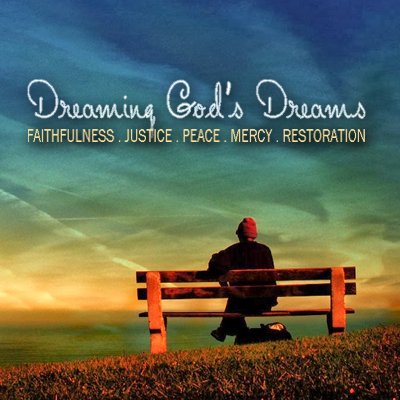Prepare the Way
Series: Happy Holy Days - Part 4
Mark 1:1-5, Luke 3:7-14
The beginning of the good news about Jesus Christ, God’s Son, happened just as it was written about in the prophecy of Isaiah:
Look, I am sending my messenger before you.
He will prepare your way,
a voice shouting in the wilderness:
“Prepare the way for the Lord;
make his paths straight.”Mark 1:1-3 (CEB)
Listen to this week’s sermon here:
____________________
Each of the four gospel writers begin with an overture that sets up the primary themes of the rest of the gospel. For Matthew and Luke, the overture uses birth and infancy narratives to establish who Jesus is for their particular audience. For John, it is a grand theological overture connecting Jesus to the eternal Word of God which spoke forth the very fabric of creation.
Mark, whose gospel is the earliest record we have, makes no reference at all to what we might call “The Christmas Story.” Instead he begins with John the Baptist, already grown and preaching repentance in the wilderness. One might wonder why the earliest written record of Jesus has no account of one of our most important holidays, or why the birth of Jesus wasn’t celebrated for the first few hundred years of Christianity. Rather than debating these historical details, however, perhaps we should be more concerned with what Mark is trying to do in his own introduction, on his own terms.
“The beginning of the good news about Jesus Christ,” Mark writes, is not found in an angelic announcement or a baby in a manger. Rather, the beginning, is found in the message of the prophets who came long before… “Prepare the way for the Lord and make his paths straight.” When we turn over to Luke’s extended telling of John’s message in Luke 3, we discover that this preparation is extremely practical. “Produce fruit that shows you have changed your hearts and lives… whoever has two shirts must share with the one who has none, and whoever has food must do the same… tax collectors must not collect more than needed…. Roman soldiers must not cheat or harass anyone despite their authority to do so…
Two points I find particularly interesting about this call to prepare the way for the Lord’s coming...
First, it is essentially the same message for everyone. Good Jews could not rely on their chosen status as children of Abraham anymore than we can rely on being born into a “Christian family” or culture. On the other hand, outsiders and traitors like occupying foreign soldiers and tax collectors, had the same opportunity to ready themselves as the Jews, by simply doing what was right and just toward their fellow human beings.
Second, John’s message makes me think about all of our own preparation for Christmas each year. Putting up decorations, buying gifts, planning our calendars around so many parties and events, making travel plans, cleaning the house for company, cooking and baking, and the list goes on. We do a lot to “prepare the way” to celebrate Christmas. But are we doing anything to “prepare the way for the Lord.” Are we “producing fruit that shows change in our lives.” Are our hearts and hands more open to others than in Christmases past?
Maybe Mark’s introduction has more to do with Christmas than it first appears.
Maybe preparing our hearts and lives for God to show up is really the whole point after all.




